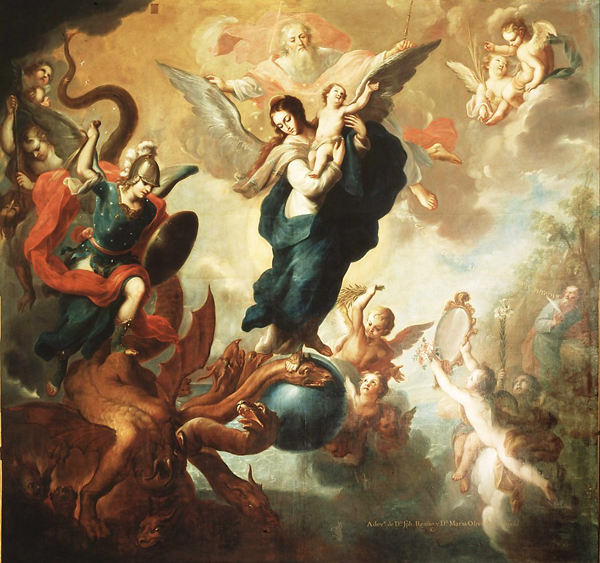We are under siege. We are subjected to an incessant barrage of Cassandra-styled prophesies propagated by bewildered oracles who mourn the fading away of not just the self-proclaimed ‘liberal world order’ but of the irrevocably aged “new brave world” as such. End of All Times mongering is omnipresent, pervasive and thoroughly irritating. Nothing can be done about it. Why? All of us involuntarily contribute to this obsession by upholding, spreading and making go viral negative news and views, especial peppered with doomsday rhetoric. Sancta simplicitas!
The reason is apparent. Faced with the unconceivable mysticism of “the dread of something after death” (as Shakespeare phrased it), humans fall prey to apprehension, alarm, and panic. Invariably, this futile exercise in clairvoyance paints the hazy future with all the 50 shades of Judgment Day colours. Pessimistic perceptions are an inbred component of the primordial ancestral fear of the unknown and incomprehensible.
Yet, after all, wasn’t it always thus?! People constantly aspired to see beyond the horizon. Beyond the constricted framework of a short-lived life. Take, for instance, Helena Petrovna Blavatsky(-aya), Russian occultist, philosopher and promoter of esoteric religion back in the XIX century. She professed her fellow-countrymen and fellow citizens would, one day, fall in love with yoga, vegetarianism, the concept of karma and reincarnation. Often defined as “a controversial” figure, sometimes reviled for “producing fraudulent paranormal phenomena”, Blavatsky predicted the advent of weapons of mass destruction and global wars.
Another telling sample of ingenious prophecy are the phantasies of a renowned British science fiction writer Herbert G. Wells who made waves back in 1933 by publishing an adventurous book with a daring title The Shape of Things to Come that extrapolated the traditional anxieties up to the year 2106. Here is how the anonymous author of Wikipedia annotates the narrative carved in stone of our common literary legacy:
“A long economic slump causes a major war that leaves Europe devastated and threatened by plague. The nations with the strongest air-forces set up a benevolent dictatorship that paves the way for world peace by abolishing national divisions, enforcing the English language, promoting scientific learning and outlawing religion. The enlightened world-citizens are able to depose the dictators peacefully, and go on to breed a new race of super-talents, able to maintain a permanent utopia.”
The grand idea of a “benevolent dictatorship” is rooted in the belief, nurtured by Plato, that a philosopher king is the ideal of governance since such a ruler would possess love of wisdom, intelligence, reliability, and a willingness to live a simple life. Later, in the XVIII and XIX centuries with the adoration of the ancient aesthetics came the promulgation of Enlightened Absolutism propped up by European monarchs. Now, having entered the third decade of the XXI century, civilization, whatever it is or whatever you thing it is, plunged headlong into vaguely defined, even less understood, mixture of postmodernism and post-democracy.
Allow me to quote once again the self-styled doom-addicted prophet Umar Haque who scrambles one level up after desecrating capitalism, which would evolve into “fascism and feudalism and neo-peasants serving neo-lords” but only if it continues eroding and goes on unchecked and un-rebuffed. Haque is eloquent to the point of converting himself into a voodoo priest stoned with opium fumes:
“The troubles we face now are just a small, small taste of the devastation and ruin to come, as the planet begins to die, as societies fracture, as economies dwindle – as our shattered, exhausted resources run out, having been squandered by capitalism in the first place, on megayachts and palaces in the sky for billionaires, instead of societies that work for all, instead of lives that flourish, instead of things that endure.”
However, on the upside, there are no less convincing prophecies that we shall overcome and survive, ensure “lives that flourish” by applying “models of resilience aiming to reinvent and redesign ourselves and our structures from the ground up”, as claimed by Nafeez Ahmed. Formerly a writer for The Guardian where he reported on the geopolitics of social, economic and environmental crises, Nafeez Ahmed is now better known as the founding editor of the investigative journalism project INSURGE intelligence. He advocates dispensing with the old “modes of thinking” and is keen to provide some guidance on how to avert catastrophe and build resilience.
As it is already clear, Nafeez Ahmed stands firm on the side of the forces of Good and strongly believes we can do it. Just like the mind-boggling futurist Raymond Kurzweil who knows every minute detail about optical character recognition (OCR), text-to-speech synthesis, speech recognition technology. His optimism is technologically driven, powered and, I would warn, twisted since the most plausible mode of survival for all of us Kurzweil sees in the advent of artificial intelligence (AI). But also, in the still visionary prophecies of transhumanism, the spreading philosophical movement heralding the emergence of posthuman beings.
 Kurzweil, declared “the ultimate thinking machine” by Forbes, foresees times, say, in 20-25 years, when millions of nanobots, blood-cell sized devices, will maintain human health in ideal shape and status, determine the depth of our memory and enhance cognitive potency. The backside of the technolyzation would be the metamorphosis of humans into (sic!) hybrid of biological and non-biological intelligence with the latter gradually becoming the dominant component of our inner self.
Kurzweil, declared “the ultimate thinking machine” by Forbes, foresees times, say, in 20-25 years, when millions of nanobots, blood-cell sized devices, will maintain human health in ideal shape and status, determine the depth of our memory and enhance cognitive potency. The backside of the technolyzation would be the metamorphosis of humans into (sic!) hybrid of biological and non-biological intelligence with the latter gradually becoming the dominant component of our inner self.
In any case, such a perspective with its protagonists entertaining the idea of life extension and immortality provides some respite and relief.
The realm of the spiritual perception of life and predestination of human beings is yet another potent source of consolation. One of the all-time-favourite and genuinely precious piece of art belongs to the paintbrush of Miguel Cabrera, the Mexican reincarnation of Italian Renaissance master, Michelangelo. His exciting and rather enigmatic portrayal of The Virgin of the Apocalypse, the work dating back to the grace year of 1760, captivates by its powerful message generated from Revelation 12 exposing the original War in Heaven culminating in Satan cast out for good.
Revelation 12:7: And there was war in heaven: Michael and his angels fought against the dragon; and the dragon fought and his angels,
Revelation 12:8: And prevailed not; neither was their place found any more in heaven.
Revelation 12:9: And the great dragon was cast out, that old serpent, called the Devil, and Satan, which deceiveth the whole world: he was cast out into the earth, and his angels were cast out with him.
The centerpiece of the visual depiction is “a great wonder in heaven; a woman clothed with the sun, and the moon under her feet, and upon her head a crown of twelve stars…” The hallmark of a divine creation. As eloquently phrased by Brother Maximilian Maria Jaskowak, “she is the chosen vessel and precious portal: the Mother of God.”
The message of the ultimate triumph of Good over Evil, so atmospherically conveyed by Cabrera, implants or rekindles faith. Maybe, blind faith. Yet, this is a powerful deterrence shielding us from the scourge of the three D – Delirium, Dementia and Depression. A sacrosanct asylum within our inner self. Professor Robert Langdon, Dan Brown’s prolific character in his “Angels and Demons” mystery novel (2000) first acknowledges, “My mind tells me I will never understand God” , but then makes an astounding admission: “Faith is a gift that I have yet to receive.”
Building upon the notion that God’s will and motives are incomprehensible, by definition and by intention, it makes it easier to climb one level up to the assumption that supernatural order supplants the natural order. In the aftermath of earthly life, continued either in the parallel reality or in the spiritual domain, something that Shakespeare defined as “The undiscovered country, from whose bourn No traveller returns”…
Even if you failed to be blessed with the gift of faith, there is not necessarily plenty but enough consolation to find in the soothing fact. So far, none of the doomsday predictions came true. Moreover, there is still plenty of time to enjoy what is truly worth enjoying. Nostradamus fixed the End of All Times for the year of 3737. “Nostradamus of the Balkans”, Baba Vanga was more generous, scheduling the curtain fall for 5070. Sigh of relief.
On a lighter note, let me assert that it makes sense to recall routinely an Irish observation, meant as a joke yet practical when we start pitying ourselves either for leading a wretched existence or in expectation of the coming doomsday: “When God made time, He made plenty of it.”
Vladimir MIKHEEV
